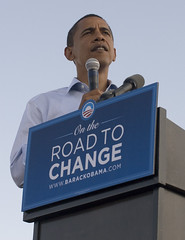 The Indiana General Assembly is advancing the so-called "Right to Work" legislation, with the state Senate expected to vote on the proposal Wednesday that the state House approved a version of last week.
The Indiana General Assembly is advancing the so-called "Right to Work" legislation, with the state Senate expected to vote on the proposal Wednesday that the state House approved a version of last week.
Putting aside the substance of the legislation for a moment, the whole debate has been a fascinating exercise in political framing:
Using "Right to Work" as a label is a clever and strategic way to frame what the legislation is about. If you are "for people having jobs," how could you dare be against their "right to work"? Any critic of "right to work" laws has to try to find some other meaningful label to use for themselves that isn't derived from the original name, but in doing so they lose some of the attention of voters. (From what I can tell, the phrase "right to work" was introduced when a group of business owners in the southern U.S. formed the National Right to Work Committee in the 1970s to try to work against union efforts.)
The "Big Labor" bashing that happened last year across the Midwest set the stage for the "Union" label itself to be tainted to some degree in the minds of many voters ("Wait, are those unionized teachers really just trying to squeeze out every last taxpayer dollar while they sit around in luxury doing nothing? Golly!"), and so at least in part because of this association, I don't think unions have succeeded in being the rallying point for those who oppose these proposals.








